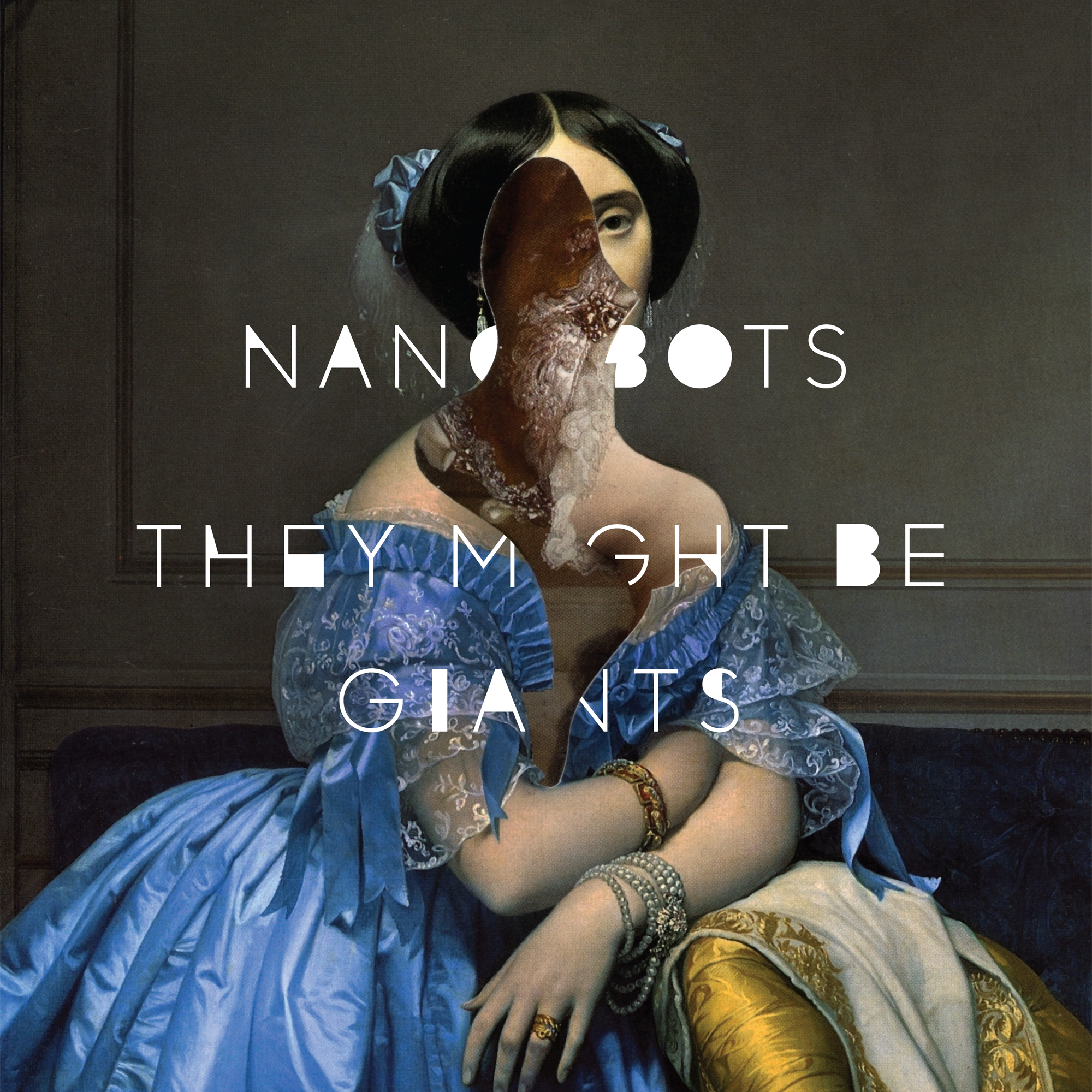
| release year | 2013 |
|---|---|
| type | album |
| listened to on | 2025-05-13 |
| new to me? | no |
| favorite (linnell) | Stone Cold Coup D'Etat |
| favorite (flans) | Black Ops |
| links | spotify, tmbw |
This is the TMBG album that we're most familiar with by far (Flood notwithstanding). If Join Us was just aggressive and spiteful, Nanobots is much more subdued; it's passive-aggressive, screaming at someone who is not there.
To a degree, Join Us is analogous to The Pink Album, both in its color and its themes. If we overlay the rest of TMBG's era 1 arc, we then can come to the conclusion that Nanobots is something between Flood and Apollo 18; it's a direct provocation of a hypothetical argument that TMBG has "lost" the metaphorical "sauce". Is that your car they're towing? I'm pretty sure that's your car.
We open with You're On Fire, which, given our prior writing about the subject of cars representing TMBG eras, the towing of the car represents a detractor. This song is largely about relationships to anger and spite, about a narrator who is addressing someone who is getting angry, spiteful. There are two ways to view this if we consider Nanobots to be largely about itself and about TMBG: either TMBG is the car being towed, or TMBG is the one towing. The real answer is that it is both.
They are sending out Nanobots, growing them up, winding them up, and wishing them away into the world. I view the nanobots as songs, especially given that TMBG would very soon revitalize the Dial-A-Song project, forming the basis of their next few albums (see the forthcoming Phone Power writeup for words on this). Under this read, the process of releasing a song is kind of a form of disownership; it is no longer TMBG's thing, its sleeper cell is awakened. It gains new and unintended meaning, much like a child.
This anti-interpretation theme continues later on the album with Stone Cold Coup D'Etat, a song about effectively "taking over" the music. In essence, the takeover in this song is a kind of interpretation, one that imposes over the band. The band can react in many ways; Stuff Is Way explores this by creating a song that is both very directly about "stuff being a way" and also one that resists interpretation. The garbled vocals and instrumentation exemplify that, where it feels like the narrator is talking nonsense. This is because the narrator does not want you to figure out what this means. In a way, I'm committing the very sin the song warns against. This is expanded upon in the micro-tracks Hive Mind, Decision Makers, Nouns, and There. The micro-tracks on this album comprise a sequence I'm going to call Tingerfips, which we'll get to.
Black Ops is probably my favorite John Flansburgh song maybe ever. It's about a remorseful drone pilot murdering people who he finds unworthy; communists, namely. For one, the fact that The Pink Album and this song exist makes it laughable that The Communists Have The Music (which came much later) caused a stir at all. Did people ever think this band was apolitical? Also, the concept of this song can be generalized to any force that seeks to "weed out the cruft" — a theme that occurs all the way at the end of the album with Too Tall Girl, a song that is both about gender and seeing above everything around you.
Themes of nostalgia show up plenty within Nanobots, given that it is, again, largely about nostalgia for prior TMBG records. One of the Tingerfips tracks, Destroy The Past, is... well. I don't feel like I have to explain that. Circular Karate Chop both absolutely slaps and also is about being trapped in nostalgia, assign[ing] regret to those accountable. The narrator is literally proud of spinning around in circles: they are trapped in an island of themself. Tesla discusses the literal Tesla being dead, and largely being ripped of credit, despite what he brought to the world; but it doesn't matter.
This gets to the third-best track from John Flansburgh ever (the second being Ondine), The Darlings Of Lumberland, which is a song about Flansburgh literally wandering around graveyards in Sullivan County. This is a thing that he actually, confirmedly does in real life. Once again, we have the Join Us theme of reckoning with death, but it's expanded upon here: it asks for a little melody if time permits. It's acknowledging that death is not the only thing left to do; there are infinitely many things left to do, many songs to make. Even upon infinite replacements (Sleep, Replicant), there is still a desire.
I can't hope to talk about everything, so sorry if I missed something. But I'd also like to comment on the Tingerfips sequence, comprising of Sleep, Destroy The Past, Hive Mind, Decision Makers, Nouns, There, Tick, Great, and Didn't Kill Me. This album has plenty of these micro-tracks, except they notably are in an order where it's impossible to roll them all into one track as is done on streaming. This is a new form of audience antagonism, one that Apollo 18 couldn't have predicted: it's an antagonism against streaming.
Notably, as we mentioned with Apollo 18, the rolling of Fingertips together into one track quite literally pays less royalties to TMBG, and so it makes financial sense to make it the way it is. Here, however, we've got an issue on our hands: the tracks are spread out! They comment on the themes of the album, spread apart in places that they make sense. But they are impossible to turn together; even giving it a name like Tingerfips is almost reductive. I think that's really neat.